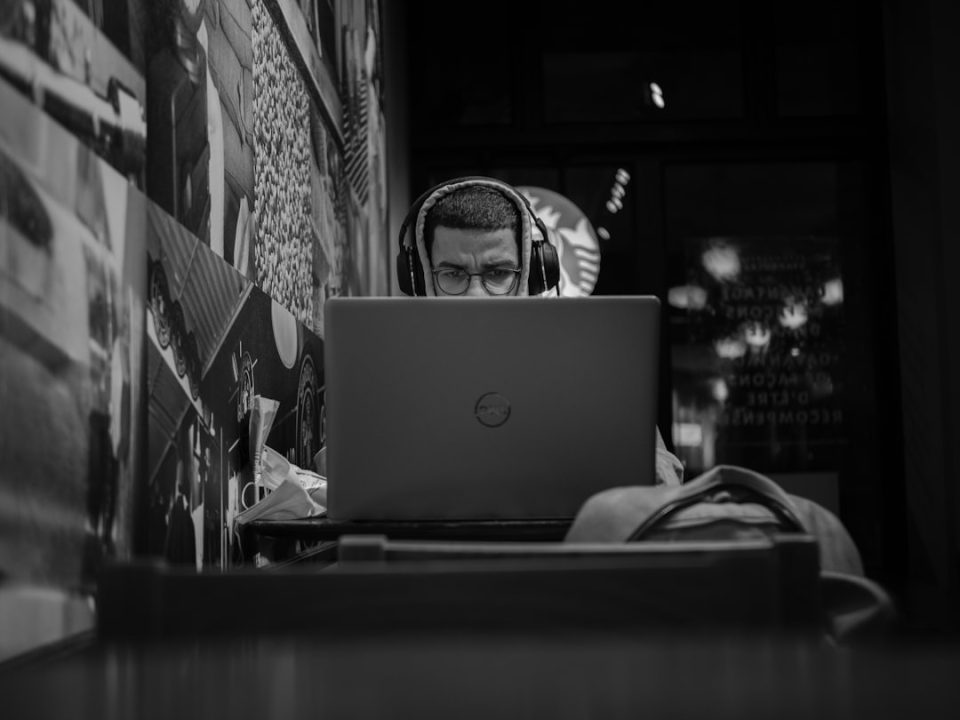Artificial Intelligence (AI) has become an integral part of various industries, revolutionizing the way businesses operate and transforming the customer experience. One industry that has seen a significant impact from AI is the modeling industry. AI has brought about the rise of AI Model Agency, the use of AI in creating virtual models, and the management of social media influencers. These advancements have not only changed the way the modeling industry operates but also have a profound impact on the fashion industry as a whole.
The Rise of AI Model Agency
In recent years, AI model agencies have emerged as a new player in the modeling industry. These agencies use AI algorithms to identify and recruit models, eliminating the need for traditional scouting methods. AI model agencies analyze vast amounts of data, including social media profiles, to identify individuals with potential modeling talent. This data-driven approach allows these agencies to find models who may have been overlooked by traditional agencies.
What sets AI model agencies apart from traditional modeling agencies is their ability to predict a model’s success based on data analysis. By analyzing factors such as engagement rates on social media, audience demographics, and market trends, AI model agencies can make more informed decisions about which models to represent. This data-driven approach not only benefits the agency but also helps models build successful careers by connecting them with brands and opportunities that align with their target audience.
AI Model Agency Creation Service: The Future of Modeling
Another way AI is transforming the modeling industry is through the creation of virtual models. AI algorithms can generate realistic virtual models that can be used for various purposes, such as advertising campaigns, fashion shows, and even virtual reality experiences. These virtual models can be customized to fit specific brand aesthetics and can be easily manipulated to showcase different looks and styles.
The advantages of using AI in the creation of models are numerous. Firstly, it allows for greater creativity and flexibility in the design process. Designers can experiment with different looks and styles without the limitations of working with real models. Secondly, AI models can be easily scaled and replicated. It allowing brands to create consistent and cohesive campaigns across different platforms and markets. Lastly, AI models can be more inclusive and diverse, representing a wider range of body types, ethnicities, and genders.
AI Influencer Management: Maximizing Brand Reach
| Metrics | Description |
|---|---|
| Engagement Rate | The percentage of followers who interact with the influencer’s content |
| Impressions | The number of times an influencer’s content is displayed to users |
| Click-Through Rate | The percentage of users who click on a link in the influencer’s content |
| Conversion Rate | The percentage of users who complete a desired action after clicking on a link in the influencer’s content |
| Cost per Engagement | The cost of each interaction with an influencer’s content |
| Return on Investment | The amount of revenue generated compared to the cost of the influencer campaign |
In addition to the rise of AI model agencies and the creation of virtual models, AI is also being used to manage social media influencers. Influencer marketing has become a powerful tool for brands to reach their target audience and increase brand awareness. However, managing a large number of influencers can be time-consuming and challenging. This is where AI comes in.
AI Model Agency algorithms can analyze data from social media platforms to identify influencers who are the best fit for a brand’s target audience. These algorithms can take into account factors such as engagement rates, follower demographics, and content relevance to determine which influencers will have the greatest impact on brand reach. AI can also help automate the process of managing influencer campaigns, from contract negotiations to performance tracking.
Advantages of AI Model Agency in the Modeling Industry
The use of AI in the modeling industry offers several advantages. Firstly, it saves time and resources by automating tasks that would otherwise require manual labor. For example, AI algorithms can quickly analyze large amounts of data to identify potential models or influencers, saving agencies and brands countless hours of scouting and research.
Secondly, AI allows for more accurate predictions and decision-making. By analyzing data and market trends, AI algorithms can make informed decisions about which models or influencers are likely to be successful. This reduces the risk for agencies and brands when investing in talent or influencer partnerships.
Lastly, AI promotes inclusivity and diversity in the modeling industry. Traditional modeling agencies have often been criticized for their lack of diversity in terms of body types, ethnicities, and genders represented. With AI, virtual models can be created to represent a wider range of diversity, challenging traditional beauty standards and promoting inclusivity.
How AI is Revolutionizing Traditional Modeling Agencies

AI is not only impacting AI model agencies but also traditional modeling agencies. These agencies are incorporating AI into their operations to become more efficient and effective. For example, AI algorithms can help streamline the casting process by matching models with specific client requirements. This reduces the time and effort required to find the right models for a particular job.
AI can also help traditional modeling agencies improve their talent management processes. By analyzing data on models’ performance, engagement rates, and market trends, agencies can better understand which models are most successful and make informed decisions about their representation. This data-driven approach allows agencies to focus their resources on models who have the greatest potential for success.
The Impact of AI on the Fashion Industry
The impact of AI on the modeling industry extends beyond just the agencies and models themselves. AI is also changing the way fashion is created and marketed. For example, AI algorithms can analyze fashion trends and consumer preferences to help designers create collections that are more likely to resonate with their target audience. This data-driven approach allows designers to make more informed decisions about which styles, colors, and fabrics to incorporate into their designs.
AI is also transforming the way fashion is marketed and sold. Virtual reality (VR) experiences are becoming increasingly popular in the fashion industry, allowing consumers to virtually try on clothes and accessories before making a purchase. AI algorithms can analyze data from these VR experiences to understand consumer preferences and tailor marketing campaigns accordingly.
AI and Diversity: A Step Forward for Inclusivity
One of the most significant advantages of using AI in the modeling industry is. Its potential to promote diversity and inclusivity. Traditional modeling agencies have often been criticized for their lack of diversity in terms of body types, ethnicities, and genders represented. With AI, virtual models can be created to represent a wider range of diversity. So challenging traditional beauty standards and promoting inclusivity.
AI algorithms can analyze data on consumer preferences and market trends to identify which types of diversity are most in demand. This allows brands and agencies to create virtual models that reflect these preferences and better represent their target audience. By embracing AI, the modeling industry has the opportunity to become more inclusive and diverse, breaking down barriers and challenging traditional beauty standards.
The Future of Modeling: AI Model Agency and Virtual Reality
The future of modeling lies in the combination of AI and virtual reality (VR) technologies. VR experiences are becoming increasingly popular in the fashion industry. It allowing consumers to virtually try on clothes and accessories before making a purchase. By combining AI-generated virtual models with VR technology, brands can create immersive and engaging experiences for their customers.
Imagine being able to attend a virtual fashion show where AI models showcase the latest collections in a realistic and interactive environment. Or being able to try on clothes virtually. Seeing how they fit and move on your own body before making a purchase. The possibilities are endless, and AI and VR have the potential to revolutionize the way we experience fashion.
Embracing the Power of AI in the Modeling Industry
In conclusion, AI has become an integral part of the modeling industry. Transforming the way agencies operate, models are created, with influencers are managed. The rise of AI model agencies has brought about a data-driven approach to talent scouting and representation. While the creation of virtual models has opened up new possibilities for creativity and inclusivity. AI is also changing the way traditional modeling agencies operate, making them more efficient and effective.
The impact of AI extends beyond just the modeling industry; it is also revolutionizing the fashion industry as a whole. From predicting fashion trends to creating immersive VR experiences. AI is changing the way fashion is created, marketed, and consumed. By embracing the power of AI, the modeling industry has the opportunity to become more inclusive, diverse, and innovative.
It is clear that AI is here to stay in the modeling industry. Those who embrace its power will be at the forefront of innovation and success. As technology continues to advance, it is essential for agencies, brands, and models to adapt and explore the potential benefits that AI can bring. The future of modeling is exciting, and AI will undoubtedly play a significant role in shaping it.
If you’re interested in the potential of AI in marketing, you might also want to check out this article on the power of social media marketing for business. Social media platforms have become essential tools for businesses to reach and engage with their target audience. This article from NKB Agency explores how businesses can leverage social media marketing strategies to boost brand awareness. It can drive website traffic, and ultimately increase sales. To learn more about the impact of social media marketing on business success, click here.







